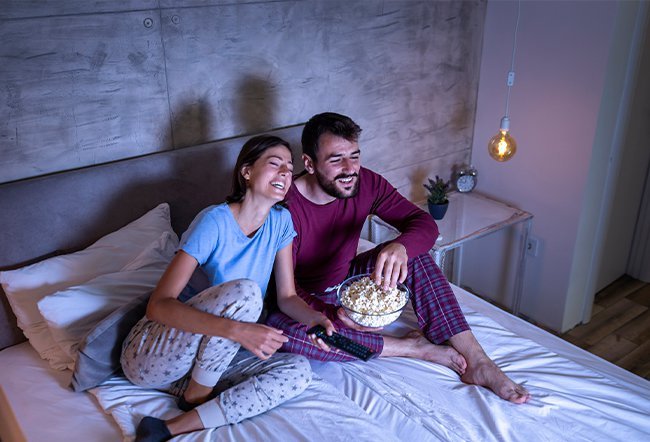Can You Be a Night Owl and an Early Bird?

Some people stay up well into the dead of night, and others wake up before the sun rises. Your tendency to be either a night owl or an early bird is known as your chronotype.
Depending on your chronotype, you may have distinct sleep-wake cycles where you are more energetic and productive during certain times of the day and sleepy or tired during others. Your chronotype can also affect your appetite, mood, level of physical activity, and other aspects of your health.
But can you be a night owl and an early bird at the same time? If you sleep late and wake up early, chances are you aren’t getting enough sleep, and trying to continue those habits is neither sustainable nor safe. Not getting enough rest can affect both your physical and mental health.
Night owl vs. early bird: which is better?
Early birds
Early birds, or morning people, wake up early and are most productive in the early hours of the day. They may, however, have more trouble keeping up with social activities in the evenings because they likely start to feel sleepy by that time. Early birds tend to perform better in school and at work, and may be more likely to get enough exercise each day.
Night owls
Night owls make up approximately 15% of the population and are most productive late into the evenings. Many are creative and more open to taking risks. While not always true, they may be more likely to:
- Be sleep-deprived
- Struggle with issues such as impulsivity, anxiety, depression, or anger
- Skip breakfast and eat more at night
- Spend more time using electronic devices
- Consume more alcohol and caffeine
- Exercise less
While being a night owl tends to come with more negatives, if the schedule works for you, there’s no reason to change just for the sake of it. As long as you are making sure to sleep 7-9 hours each night, eating healthy, and getting enough exercise, you should be fine.
8 steps for shifting from night owl to early bird
However, if you need to wake up early in the mornings for school or work, being a night owl can lead to sleep deprivation and have a harmful effect on your health. And while not easy, you can train yourself to make a shift to an early bird lifestyle with the following tips:
- Take small steps: Make realistic goals about changing your sleep routine. If you are someone who normally wakes up at 10 a.m., suddenly trying to wake up at 5 a.m. will be too difficult. Try a more gradual approach, such as getting up 30 minutes earlier every day for a week until you start waking up at the desired time.
- Get some sunlight: Light affects your biological clock or circadian rhythm by helping your body release the hormone melatonin that regulates your sleep-wake cycle. Getting some sunlight during the day may help you adjust to a new sleep schedule.
- Avoid daytime naps: If you sleep or rest a lot during the day, you may find it tough to sleep at night. Stay active throughout the day, and if you need to take a nap, keep it under 30 minutes.
- Avoid alcohol or caffeine in the evenings: Caffeine can interfere with your sleep by blocking a brain chemical called adenosine that helps you sleep. And although alcohol can relax you, it can also negatively affect your sleep quality and interrupt your sleep cycle by making you get up to use the bathroom during the night. Avoid having caffeine after lunch and alcohol after dinner.
- Avoid a heavy dinner: Spicy or fatty meals may make it uncomfortable for you to relax. Make sure to eat at least 3 hours before bedtime and no later.
- Don’t exercise late in the evening: Exercise can make you feel wired and energized, making it difficult to slow down enough to feel sleepy. Schedule your workouts in the morning or at least 4 hours before bedtime.
- Establish a bedtime routine: Take a warm shower, wear breathable pajamas, and adjust your room temperature before you go to bed. Practicing a regular and soothing nighttime routine can help train your body to know when it’s time to unwind and go to sleep.
- Limit screen time: Avoid scrolling through your phone or staring at your TV or laptop before bed, since the blue light emitted from these devices can affect your ability to fall asleep and stay asleep.
